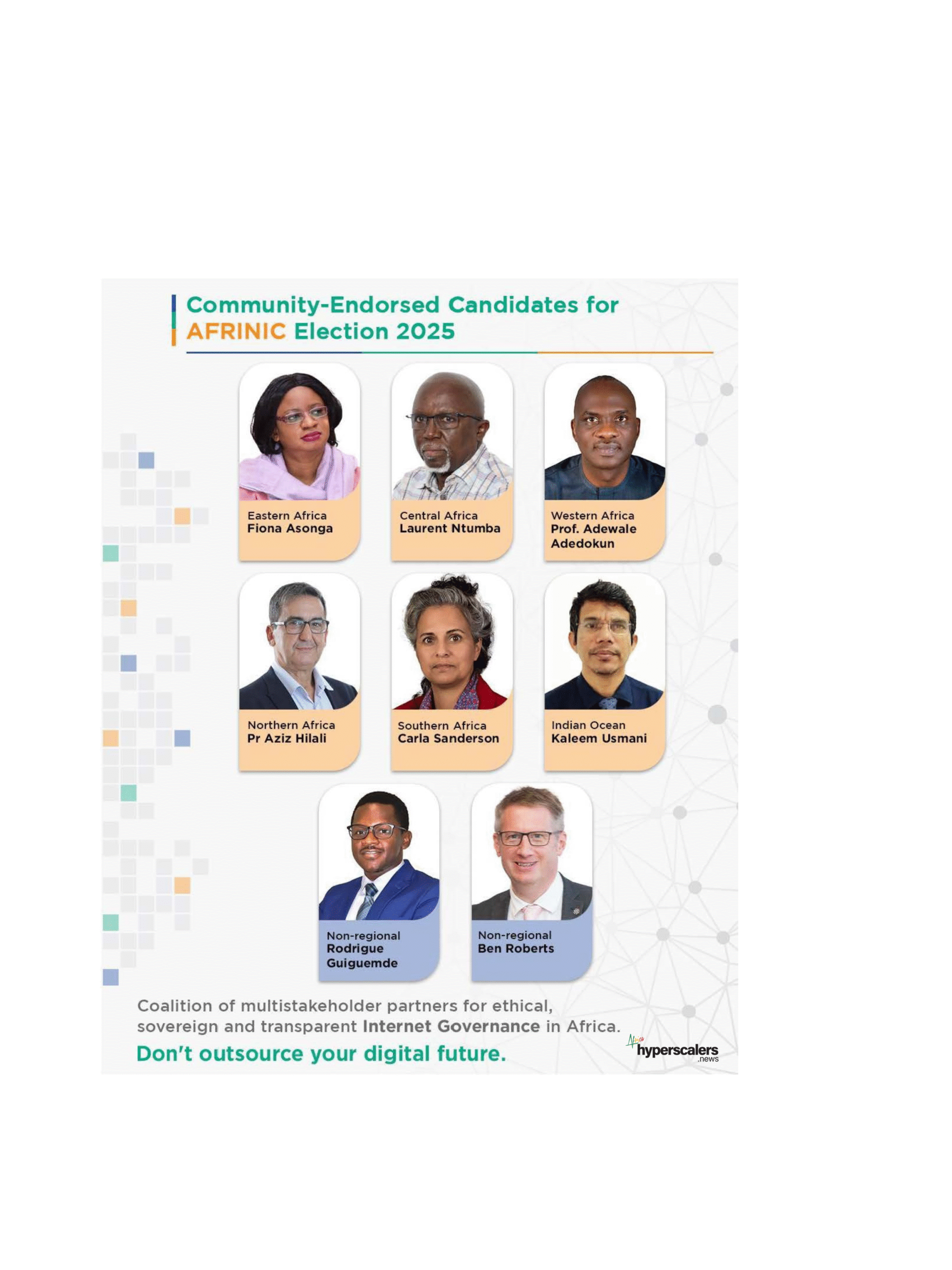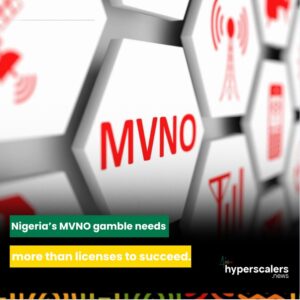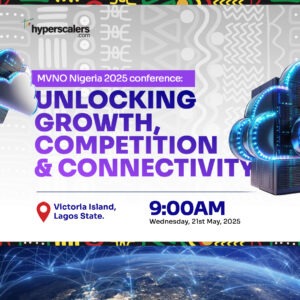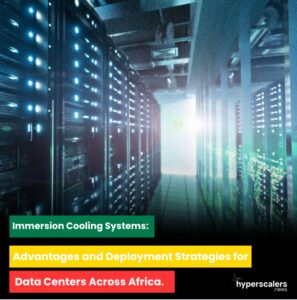In a quiet corner of Africa’s internet ecosystem, an election is unfolding that will determine much more than who sits on a board. It will shape whether Africa governs its digital future or continues to remain a spectator to decisions made elsewhere.
At the center of this moment is the African Network Information Centre (AfriNIC), the continent’s sole Regional Internet Registry. Created to allocate and manage IP address space for Africa’s 54 countries, that technical mission has always been clear. But the last three years have dragged AfriNIC into bruising existential crises: of governance, trust, and relevance.
Board meetings collapsed. Lawsuits mounted. Courts intervened. And the very institution created to serve as a neutral steward of Africa’s internet began to lose its grip on the trust of the community it was built to serve. And this leadership vacuum came at a time when the continent could least afford to stumble.
Because Africa is rising – digitally, demographically, and economically. From sovereign cloud strategies to AI investments, from local data center expansions to expanding fiber networks, the continent’s digital infrastructure is evolving rapidly. But that evolution depends on reliable, technically competent, and locally grounded internet governance. And no institution symbolizes that imperative more than AfriNIC.
That’s what makes this election different. This is not a routine change of seats. This is a referendum on whether Africa retains control over the plumbing of its internet.
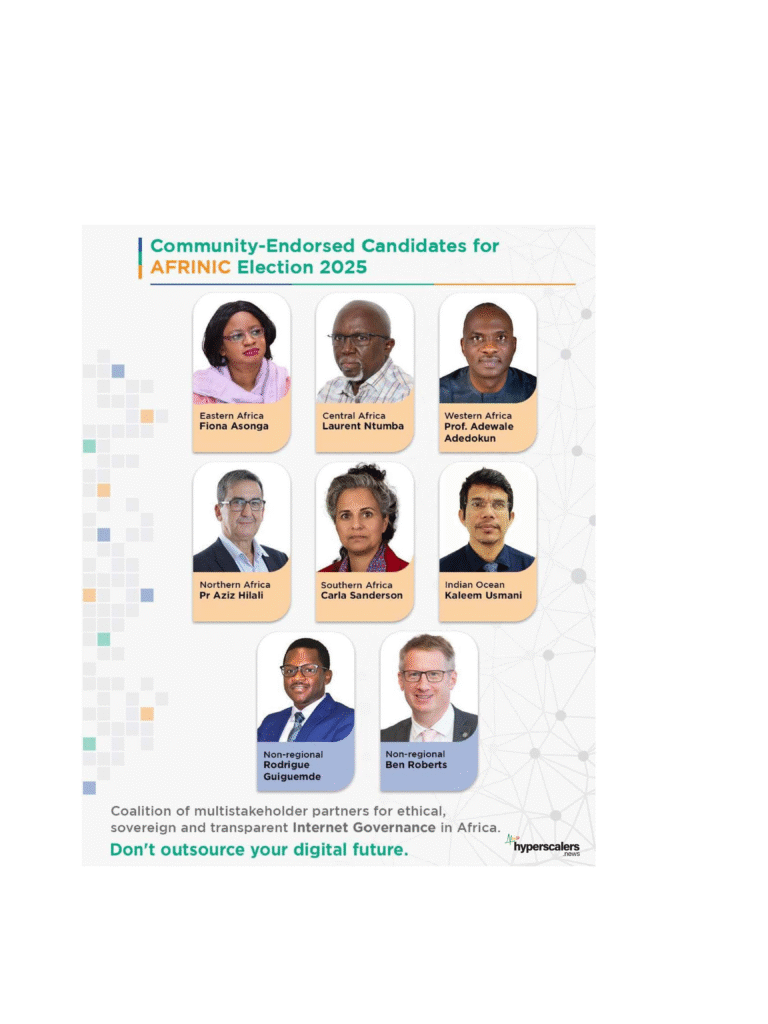
Among the candidates are voices that carry weight and wisdom. Ben Roberts, founder, Digital Economy Advisors, former Group CTO of Liquid Intelligent Technologies, a Cassava Technology company, and board member, Africa Hyperscalers Convergence Africa, is a continent-spanning infrastructure veteran whose work has touched nearly every fiber backbone on the map. Carla Sanderson, Head of Marketing at Digital Realty’s Teraco, brings the commercial urgency of Africa’s interconnection future into the conversation, as promoter of NAP Africa – a future in which data must flow fast, local, and resilient. Prof. Adewale Adedokun, Coordinator, ngNOG, offers institutional memory and a deep commitment to public-interest governance. Alongside them, Rodrigue Guiguemde, Fiona Asonga, Laurent Ntumba, Pr Aziz Hilali, and Kaleem Usmani represent a coalition of technocrats, regulators, and builders who understand both the urgency of reform and the burden of responsibility.
Together, they are offering to repair a vessel that has drifted off course and steer it back toward its purpose.
Because the stakes are no longer theoretical. Without a credible AfriNIC, Africa risks losing its seat at the table in global internet governance. While we focus on building the digital infrastructure required: subsea cables, fiber, wireless, and satellite connectivity, and data centers, we risk returning to dependency on external registries, on commercial brokers, on invisible intermediaries. Risks are allowing IP resources, digital sovereignty, and routing policies to be determined outside of African institutions and priorities.
There is no shortcut around this. The path forward must be rooted in competence, transparency, and a commitment to shared infrastructure over siloed interests. The leaders stepping forward now do so not because it’s easy, but because they know what failure would cost.
The election ends June 23. Every eligible member, every ISP, every telecom operator, every university, every government agency – has a vote.
This is not just a vote for a board. It is a vote for Africa’s right to govern its own digital destiny.
Africa’s internet must not be governed by absence, by accident, or by external fiat. It must be governed by those who build it, use it, and depend on it. That future still belongs to Africa.


